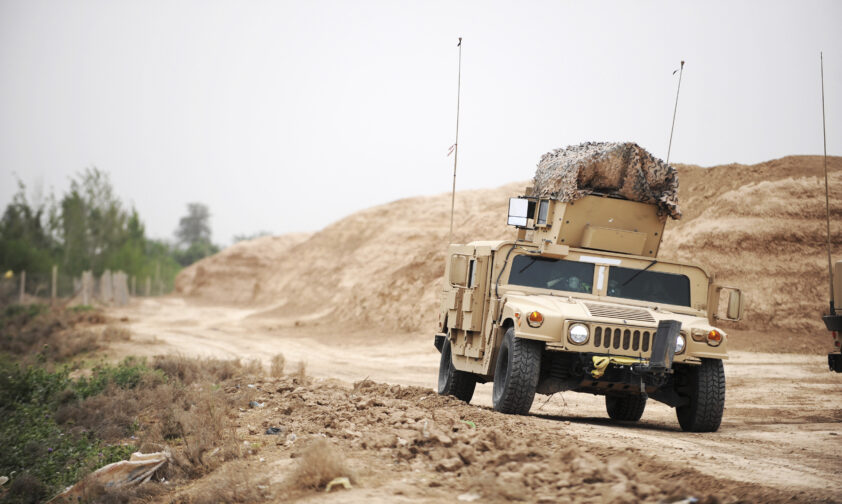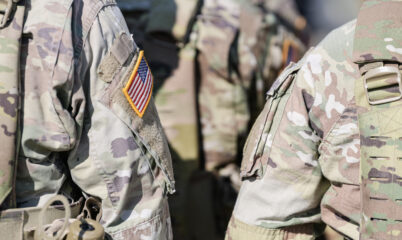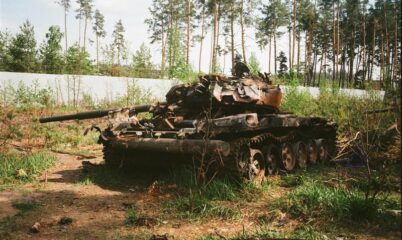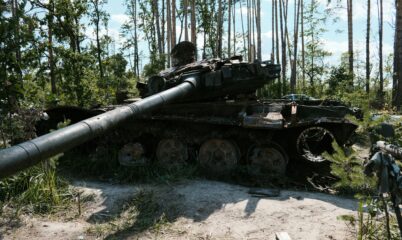
Those who served in Iraq deserve to see the end of the war. I know, I was there.
March 18th 2003, I arrived home from a late-night bartending shift in Queens. At work, I had been watching news reports of the bombing of the Hussein family compound, marking the start of the Iraq War. At home, a message was waiting on my answering machine: “Specialist Byrnes, report to the Manhattan Armory by 0900 tomorrow March 19, with all your gear.”
I spent the next week training at Camp Smith for a New York City focused homeland security mission while watching the invasion of Iraq, with all its shock and awe, on cell phones. Sent next to Manhattan, by night I stood watch at the City Hall subway station, and by day I slept or snuck out of our local quarantine to attend classes at Hunter College.
By the time President Bush preemptively announced, “mission accomplished,” I was back to bartending and college. A few months later, I found out I would be deployed to Iraq, and I saw combat just before the war’s first anniversary.
That was twenty years, two trillion dollars, and more than 4,500 American lives ago. Several of those fallen I called friends. I’ve lost several more friends to suicide at home. The costs of our intervention in Iraq are devastating.
We lost several soldiers during our first tour. The closest was a young Nigerian immigrant killed by a roadside bomb. He had been one of my soldiers to lead during the subway mission at the beginning of the war. His death, eight weeks before we were relieved in place, was tragic and painful. His squad and platoon mates still celebrate his life annually.
A month later in a sister unit, two soldiers from our home National Guard unit died near Baghdad. In 2006, we learned that the Explosive Ordnance Disposal NCO that our teams had partnered with, who kept us alive for months, was effectively assassinated by a very complex roadside bomb, designed specifically to kill an EOD Bomb Tech.
Ten years after we returned home, a fellow NCO from my unit’s Iraq rotation took his own life, one of the thousands of young Americans lost to an invisible wound that kills them, sometimes long after they seem safely away from war and combat.
The men I served with have mostly left the military or retired. Men who were junior enlisted then, reached the upper ranks of the NCO corps. I retired in 2018. Most of us are comfortably somewhere in middle age.
But the 2002 Authorization for Use of Military Force is still alive and well. One could argue the merits of our casus belli, although I have come to realize the intelligence and analysis forming the basis for that decision was faulty. It’s hard to deny the costs that have been inflicted on the American people, taxpayers and especially on America’s veterans. Yet there is still a lack of will in Washington DC to repeal an AUMF that was written to authorize war against a government that no longer exists.
But there are no credible excuses for keeping this AUMF on the books. We are not at war with Iraq, nor is there any vital national interest at stake that requires boots on the ground.
Our founding fathers had a distaste for war, especially open-ended war. That’s why the Constitution gives Congress the power to declare war because the founders foresaw the potential for abuse by a reckless executive. It’s high time Congress reclaims that responsibility and takes tough votes on matters of war and peace. Senator Schumer has the opportunity to lead here by making good on his public commitment to give repealing the 2002 AUMF a vote.
Americans deserve an official end to the Iraq War. America’s veterans and military families deserve a Congress willing to repeal a long unnecessary legal instrument for war. Congress can and should repeal the 2002 AUMF and declare to those who served in Iraq that that chapter of our history is over.
John Byrnes is deputy director for Concerned Veterans for America and a veteran of the wars in Iraq and Afghanistan.




